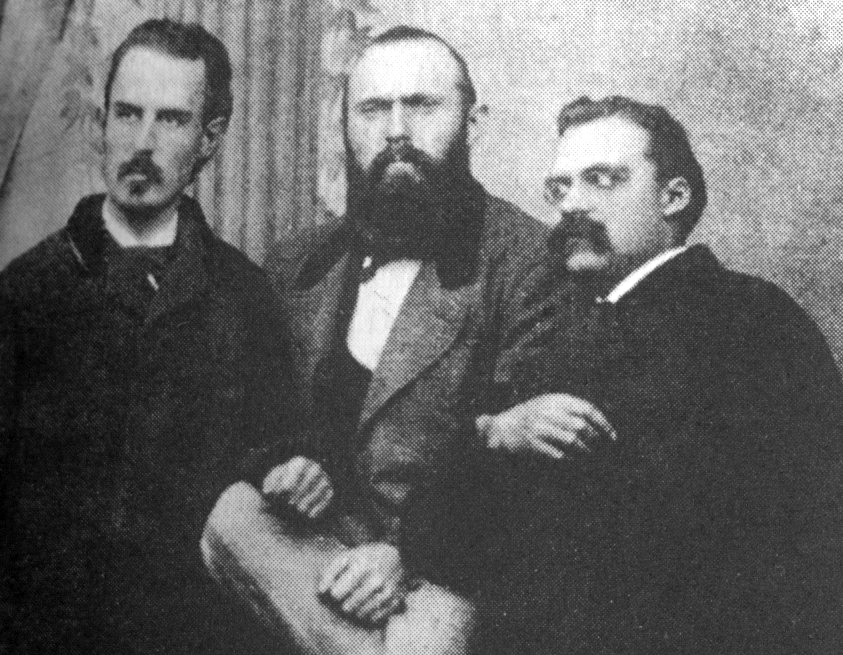Neuroscience
Now, more than ever, you have the freedom of thought to question anything you want. As an undergraduate, you might be idealistic, valiant, noble vision about the future that is not burdened by the past. Regardless of how true your dreams will be, you should keep this ambition cultivated throughout your life.
Now who's stopping you?
- A Philosophy Of Life At Iu: On Volunteering, Leadership, And Well-roundedness
The really important kind of freedom involves attention and awareness and discipline, and being able truly to care about other people and to sacrifice for them over and over in myriad petty, unsexy ways every day. That is real freedom. That is being educated,...
- The (wrong) Reasons To Become A Doctor: A Medical Ethicist's Perspective
This post is written from the point-of-view of pre-medical students, but I believe the issues and topics that I discuss can be applied to any undergraduate student who has a desire to learn. As we search for meaning in our lives, we worry most about...
- On The Value Of A College Education: A Philosophy Professor's Perspective
Why do we go to college? Surely, we know that spending four years to get a degree should have much more value than just sitting through a few tests and racking up lines on a resume. We oughta learn how to think, for “an undergraduate experience devoted...
- Learning Why We Learn: A Call To Action For All Undergraduates
Last month, I attended the CSRES Symposium "Wonder and the Natural World", and I had a chance to listen to a speech by Dr. Richard Gunderman, Professor of Liberal Arts at the IU School of Medicine. (He actually completed an MD-PhD in Philosophy, and...
- The Pre-medical Motive: Curiosity, Practicality, And Numbers
We are what we learn. As a lie in the bedroom of my dorm, I have only a few weeks left of classes for this semester. This summer I will have the wonderful opportunity of performing research at the Conte Center of the University of Chicago. ...
Neuroscience
Challenge the Status Quo: Strengths and Limitations of Academic Freedom
Undergraduates of America,
The time to change history is yours.
It's likely that you've spent most of your life growing up in a bubble. It might be true that, in your hometown, you never knew much about the world around you. You may have wondered about things and desired to learn more, but it might have been difficult for you. You might have felt powerless, oppressed, or weak in any way at some points throughout your life. Now that you're at the university, But the world is exciting, terrifying, and absurd. And that's what makes you human. Take it in stride.
 |
| "Elsipogtog" by Fanny Aishaa |
Now, more than ever, you have the freedom of thought to question anything you want. As an undergraduate, you might be idealistic, valiant, noble vision about the future that is not burdened by the past. Regardless of how true your dreams will be, you should keep this ambition cultivated throughout your life.
"Freedom is acquired by conquest, not by gift. It must be pursued constantly and responsibly. Freedom is not an ideal located outside of man; nor is it an idea which becomes myth. It is rather the indispensable condition for the quest for human completion." -Pablo Freire ("Pedagogy of the Oppressed")
In Freire's 20th century Marxist analysis, the student-teacher relationship is similar to an oppressed-oppressor relationship in which the students are given the freedom and power to understand the human condition. This fights dehumanizing issues like violence, prejudice, and exploitation. The learners and the learned create knowledge hand-in-hand.
Regardless of whether or not you agree with Freire's conclusions (one might argue that his work is outdated), an exploration of the status quo will tell you that the message is clear: challenge authority. No more dogmatic listening to what you should make of your college career. Listen with an active mind. The way you change the world is not through what the academic advisors will tell you. And it's not through what your professors did when they were your age. It's through something developed by
you for the ever-changing 21st century.
There is a common theme that the education is meant to provide a utilitarian value to prepare us for our future. We value ourselves as students only insofar as we can make money and produce a benefit to society. But, as many scholars have argued over the centuries, the value of an education isn't something with a price tag. You're at the university to become a better person, cultivate a love of learning, and understand the true gifts of a liberal arts education.
Stepping back in time further, late-19th century German Philosophy Friedrich Nietzsche would lament that utility-based approach to education, as well. He would write:
as much knowledge and education as possible—leading to the greatest possible production and demand—leading to the greatest happiness: that’s the formula. Here we have Utility as the goal and purpose of education, or more precisely Gain: the highest possible income … Culture is tolerated only insofar as it serves the cause of earning money. ("On The Future Of Our Educational Institutions")
It's easy to see why education needs something more than just preparing us for future careers or for allowing us to make the most money in the future. Unfortunately, while this argument sounds beautiful in theory, it's far too romantic and idealistic to practically implement. At the end of the day, you need a roof over your head before having the luxury of studying Shakespeare. And the reality of the role that technology is increasingly playing in our society means that it would be ridiculous if undergraduates switched to Philosophy majors in order to truly appreciate Descartes during their four years at the university.
And, in spite of the individual freedom of an ideal democracy, there's something that worries you: Is all of this individual freedom truly good for us?
Nietzsche wrote that pursuing complete freedom for the student would lead to chaos, and, instead, called for discipline and order among students. He criticized the schools that would "succeed in implanting independence in the place of the dependence, discipline, subordination, and obedience implanted by former generations that thought it their duty to drive away all the bumptiousness of independence!" ("On The Future Of Our Educational Institutions") We should realize that becoming completely free in the value we get from our education would cause us to have entirely subjective, vague concepts of education. From these limitations, it's clear we have both practical and pragmatic reasons to question even freedom itself.
 |
| Mid-October 1871. From left: Erwin Rohde, Karl von Gersdorff, Nietzsche. With his friends, Nietzsche was able to freely express the isolation he experienced in Academia. Only through such unhindered expression can we explore such topics. |
With great power comes great responsibility. I'm not going to tell you what your priorities are nor am I going to try to persuade you to adopt a certain philosophy of education. You should do that yourself. You have the right to choose what you want to get from your education. Maybe it is the process in which we examine our concept of freedom in the context of education that truly gives us answers. If your classes don't encourage enough skepticism and inquiry, then you're missing out on those things.
- A Philosophy Of Life At Iu: On Volunteering, Leadership, And Well-roundedness
The really important kind of freedom involves attention and awareness and discipline, and being able truly to care about other people and to sacrifice for them over and over in myriad petty, unsexy ways every day. That is real freedom. That is being educated,...
- The (wrong) Reasons To Become A Doctor: A Medical Ethicist's Perspective
This post is written from the point-of-view of pre-medical students, but I believe the issues and topics that I discuss can be applied to any undergraduate student who has a desire to learn. As we search for meaning in our lives, we worry most about...
- On The Value Of A College Education: A Philosophy Professor's Perspective
Why do we go to college? Surely, we know that spending four years to get a degree should have much more value than just sitting through a few tests and racking up lines on a resume. We oughta learn how to think, for “an undergraduate experience devoted...
- Learning Why We Learn: A Call To Action For All Undergraduates
Last month, I attended the CSRES Symposium "Wonder and the Natural World", and I had a chance to listen to a speech by Dr. Richard Gunderman, Professor of Liberal Arts at the IU School of Medicine. (He actually completed an MD-PhD in Philosophy, and...
- The Pre-medical Motive: Curiosity, Practicality, And Numbers
We are what we learn. As a lie in the bedroom of my dorm, I have only a few weeks left of classes for this semester. This summer I will have the wonderful opportunity of performing research at the Conte Center of the University of Chicago. ...
